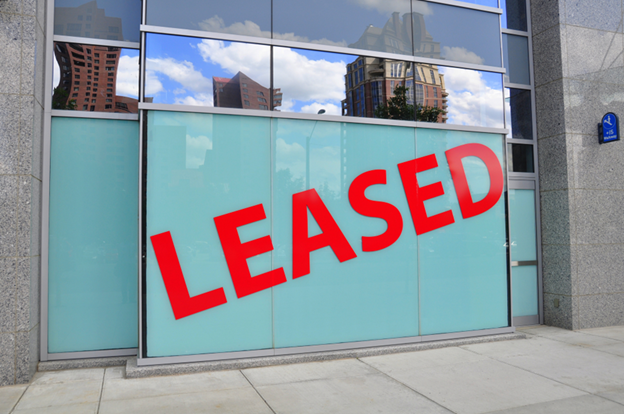When a loved one’s estate is being distributed, many beneficiaries may be considered. As a person has built up their assets over their life, several parties may have an interest in certain parts of their estate. As a result, those assets that are jointly owned must be divided amongst named beneficiaries, but this can be a tricky task. A partition action can be taken that will allow Arizona courts to assume responsibility for determining the most suitable way of apportioning the estate. Due to the complexity that can come with estate planning, consulting with an attorney during the process can be helpful. If you have questions about creating or managing your estate plan, or about how a partition action after a loved one’s death may impact you, consider reaching out to the Arizona estate planning attorneys at Harrison Law, PLLC and scheduling your free, confidential consultation by calling (480) 320-2310 today.
Circumstances That May Prompt a Partition Action
 Partition actions may be taken in a variety of situations that call for a separation of shared interests. This set of circumstances is commonly seen in families in which the parents leave shared property to their several children. When the parents are both deceased, the household home and the land that the parents raised the family on may be passed on as a shared inheritance, with each of the children sharing a portion of ownership in the property. As siblings figure out what to do with the property, one may want to keep the property while another may want to sell.
Partition actions may be taken in a variety of situations that call for a separation of shared interests. This set of circumstances is commonly seen in families in which the parents leave shared property to their several children. When the parents are both deceased, the household home and the land that the parents raised the family on may be passed on as a shared inheritance, with each of the children sharing a portion of ownership in the property. As siblings figure out what to do with the property, one may want to keep the property while another may want to sell.
Sometimes the siblings are able to figure out a fair way to split the property up without court involvement. When the siblings are able to come to an agreement on their own, there is no need to file a partition action; they can proceed to dispose of the property according to whatever arrangement they have made amongst themselves. In other situations, however, there may be no possible cooperation and agreement made. In these cases, any of the siblings may file a partition action and take their case to the court.
Three Outcomes of Partition Actions by the Court
When there is no agreement that can be made regarding the division of property, then one of the persons owning a share in the property may take legal action and ask the court to assess the case. The State of Arizona’s statues govern the process of compelling partition. The outcomes of the partition action can generally be expected to take one of three forms.
Forced Sale
The court orders that the property must be sold. Then, the proceeds will be given to each co-owner based on how much of the property they hold or the percentage they have in ownership. To illustrate, in a case with three children, whose parents have give them equal shares of the family home, the court may issue an order that the property be sold and the proceeds divided amongst the siblings. When the forced sale happens through a partition suit, then each sibling will obtain one-third of the total proceeds from the sale.
Physical Division
A court may order the property to be physically divided amongst co-owners. In this scenario, no co-owner has to face a forced sale of property against their will. Rather, portions of the physical property are allotted to each person who had an interest in the whole.
Buying Out Co-Owners
The court may order an appraisal to determine the property’s value. Once this is known, those co-owners who want to sell can offer the co-owners who want to keep a property the opportunity to buy out their portion of ownership in the property. In the example of the division of a family home, an appraisal can determine how much the home is worth if a sale would happen. Then if one of the siblings wants to keep the home but the other two do not, the sibling who wants the physical property will have to pay two-thirds of the value at which the house has been appraised, with half of that amount going to each of the other two siblings.
How Are Partition Actions Most Commonly Resolved?
Considering how complicated it can be to physically divide property and apportion it so as to precisely reflect each co-owner’s percentage of ownership, forcing the sale of the property is a very common result of a partition action. When this happens, each co-owner will be compensated financially for their portion of ownership and the partition action will be resolved.
If the co-owner who is bringing the legal action to the court does so in order to request a forced sale, they must show one of two things. In the first case, they may attempt to demonstrate that would be impossible to properly divide the property in question so that each co-owner could obtain their full and fair portion of ownership. Alternatively, they may instead make the case that making such a division would cause the overall value of the property to be reduced. If the co-owner bringing suit is amenable to a physical division or to buying out the other owners, then one of these other options may be preferable to a forced sale.
Paying for a Partition Action
As with many lawsuits, partition actions can take some time to resolve, and they can also be costly. Going through the partition action process can also be quite stressful on all involved. In some cases, the conclusion of a successful partition suit may mean that co-owners burdened with legal costs and associated property maintenance fees, taxes, and other expenditures can have all of these items reimbursed. In other situations, they will themselves be responsible for all of those expenses. If you have questions about the financial burdens of pursuing a partition action, consider reaching out to the experienced estate planning attorneys at Harrison Law, PLLC to schedule a consultation to evaluate your case.
Can a Partition Lawsuit Be Stopped?
Depending on the property at hand, it can be very emotional and difficult for a co-owner to face the potential of a forced sale of a property and losing it. While this is understandable, the courts have a different view on these situations of disagreement. Often, the position of the court is that no one should have to keep, own, and be responsible for property they are not interested in taking care of or that they do not want.
This is why it can often be a difficult task to stop a partition lawsuit once it has begun. If all co-owners can come to the bargaining table and agree to specific terms, there is the possibility that despite a lawsuit already being filed, the forced sale could be avoided.
Speak to an Arizona Estate Planning Attorney Today
If a partition action has been filed for a property you do not want to sell, you still have rights that you can protect in this difficult situation. Even though a suit has been filed, that does not always mean that your case is going to go to court, nor that you will necessarily lose physical ownership of the property in question. Other options may exist by which you can come to a fair agreement with the other co-owners of the property. For help with partition lawsuits in Arizona, the Arizona estate planning lawyers at Harrison Law, PLLC are ready to answer your questions. Get support from our experienced estate planning attorneys today by calling (480) 320-2310 to schedule your free initial consultation.
© 2023 Matthew W. Harrison and Harrison Law, PLLC All Rights Reserved
This website and article have been prepared by Harrison Law, PLLC for informational purposes only and does not, and is not intended to, constitute legal or financial advice. The information is not provided in the course of an attorney-client relationship and is not intended to substitute for legal advice from an attorney licensed in your jurisdiction.






